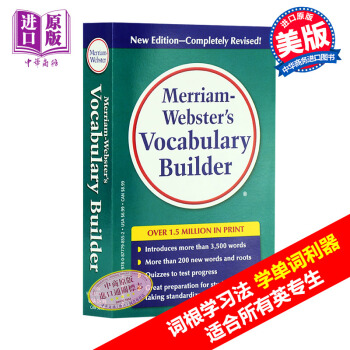![The Wealth of Nations (Bantam Classics)國富論 英文原版 [平裝]](https://pic.tinynews.org/19017192/rBEhV1KKyqgIAAAAAA-Fp6QTzkUAAFygQHzlB0AD4W_424.jpg)

具體描述
編輯推薦
If you're wondering which Wealth of Nations to purchase, get the Bantam paperback. This is Smith's complete and unabridged final version of the Wealth of Nations. It provides footnotes on Smith's wording, the historical context, and the differences between Smith's 5th edition and previous editions. In addition, the margin of the pages contain useful notes which summarize Smith's writing. For the price, this is clearly the superior choice.Now, if you're wondering whether you should undertake such an endeavor, let me just say that Adam Smith was a professor of rhetoric. He explains everything so precisely, yet so comprehensible. Smith's writing is by no means difficult; I actually found it a surprisingly easy read given its antique nature. Once you get through the first chapter, you get quite used to Smith's writing style. If you put adequate time and energy into it, it's not hard at all.
內容簡介
It is symbolic that Adam Smith's masterpiece of economic analysis, The Wealth of Nations, was first published in 1776, the same year as the "Declaration of Independence."In his book, Smith fervently extolled the simple yet enlightened notion that individuals are fully capable of setting and regulating prices for their own goods and services. He argued passionately in favor of free trade, yet stood up for the little guy. The Wealth of Nations provided the first--and still the most eloquent--integrated description of the workings of a market economy.
The result of Smith's efforts is a witty, highly readable work of genius filled with prescient theories that form the basis of a thriving capitalist system. This unabridged edition offers the modern reader a fresh look at a timeless and seminal work that revolutionized the way governments and individuals view the creation and dispersion of wealth--and that continues to influence our economy right up to the present day.
作者簡介
Adam Smith was born in a small village in Kirkcaldy, Scotland in 1723. He entered the University of Glasgow at age fourteen, and later attended Balliol College at Oxford. After lecturing for a period, he held several teaching positions at Glasgow University. His greatest achievement was writing The Wealth of Nations (1776), a five-book series that sought to expose the true causes of prosperity, and installed him as the father of contemporary economic thought. He died in Edinburgh on July 19, 1790.精彩書評
"Adam Smith's enormous authority resides, in the end, in the same property that we discover in Marx: not in any ideology, but in an effort to see to the bottom of things."--Robert L. Heilbroner
精彩書摘
CHAPTER IOF THE DIVISION OF LABOUR
The greatest improvement in the productive powers of labour, and the greater part of the skill, dexterity, and judgment with which it is any where directed, or applied, seem to have been the effects of the division of labour.
The effects of the division of labour, in the general business of society, will be more easily understood, by considering in what manner it operates in some particular manufactures. It is commonly supposed to be carried furthest in some very trifling ones; not perhaps that it really is carried further in them than in others of more importance: but in those trifling manufactures which are destined to supply the small wants of but a small number of people, the whole number of workmen must necessarily be small; and those employed in every different branch of the work can often be collected into the same workhouse, and placed at once under the view of the spectator. In those great manufactures, on the contrary, which are destined to supply the great wants of the great body of the people, every different branch of the work employs so great a number of workmen, that it is impossible to collect them all into the same workhouse. We can seldom see more, at one time, than those employed in one single branch. Though in such manufactures, therefore, the work may really be divided into a much greater number of parts, than in those of a more trifling nature, the division is not near so obvious, and has accordingly been much less observed.
To take an example, therefore, from a very trifling manufacture; but one in which the division of labour has been very often taken notice of, the trade of the pin-maker; a workman not educated to this business (which the division of labour has rendered a distinct trade), nor acquainted with the use of the machinery employed in it (to the invention of which the same division of labour has probably given occasion), could scarce, perhaps, with his utmost industry, make one pin in a day, and certainly could not make twenty. But in the way in which this business is now carried on, not only the whole work is a peculiar trade, but it is divided into a number of branches, of which the greater part are likewise peculiar trades. One man draws out the wire, another straights it, a third cuts it, a fourth points it, a fifth grinds it at the top for receiving the head; to make the head requires two or three distinct operations; to put it on, is a peculiar business, to whiten the pins is another; it is even a trade by itself to put them into the paper; and the important business of making a pin is, in this manner, divided into about eighteen distinct operations, which, in some manufactories, are all performed by distinct hands, though in others the same man will sometimes perform two or three of them. I have seen a small manufactory of this kind where ten men only were employed, and where some of them consequently performed two or three distinct operations. But though they were very poor, and therefore but indifferently accommodated with the necessary machinery, they could, when they exerted themselves, make among them about twelve pounds of pins in a day. There are in a pound upwards of four thousand pins of a middling size. Those ten persons, therefore, could make among them upwards of forty-eight thousand pins in a day. Each person, therefore, making a tenth part of forty-eight thousand pins, might be considered as making four thousand eight hundred pins in a day. But if they had all wrought separately and independently, and without any of them having been educated to this peculiar business, they certainly could not each of them have made twenty, perhaps not one pin in a day; that is, certainly, not the two hundred and fortieth, perhaps not the four thousand eight hundredth part of what they are at present capable of performing, in consequence of a proper division and combination of their different operations.
In every other art and manufacture, the effects of the division of labour are similar to what they are in this very trifling one; though, in many of them, the labour can neither be so much subdivided, nor reduced to so great a simplicity of operation. The division of labour, however, so far as it can be introduced, occasions, in every art, a proportionable increase of the productive powers of labour. The separation of different trades and employments from one another, seems to have taken place, in consequence of this advantage. This separation too is generally carried furthest in those countries which enjoy the highest degree of industry and improvement; what is the work of one man in a rude state of society, being generally that of several in an improved one. In every improved society, the farmer is generally nothing but a farmer; the manufacturer, nothing but a manufacturer. The labour too which is necessary to produce any one complete manufacture, is almost always divided among a great number of hands. How many different trades are employed in each branch of the linen and woollen manufactures, from the growers of the flax and the wool, to the bleachers and smoothers of the linen, or to the dyers and dressers of the cloth! The nature of agriculture, indeed, does not admit of so many subdivisions of labour, nor of so complete a separation of one business from another, as manufactures. It is impossible to separate so entirely, the business of the grazier from that of the corn-farmer, as the trade of the carpenter is commonly separated from that of the smith. The spinner is almost always a distinct person from the weaver; but the ploughman, the harrower, the sower of the seed, and the reaper of the corn, are often the same. The occasions for those different sorts of labour returning with the different seasons of the year, it is impossible that one man should be constantly employed in any one of them. This impossibility of making so complete and entire a separation of all the different branches of labour employed in agriculture, is perhaps the reason why the improvement of the productive powers of labour in this art, does not always keep pace with their improvement in manufactures. The most opulent nations, indeed, generally excel all their neighbours in agriculture as well as in manufactures; but they are commonly more distinguished by their superiority in the latter than in the former. Their lands are in general better cultivated, and having more labour and expence bestowed upon them, produce more in proportion to the extent and natural fertility of the ground. But this superiority of produce is seldom much more than in proportion to the superiority of labour and expence. In agriculture, the labour of the rich country is not always much more productive than that of the poor; or, at least, it is never so much more productive, as it commonly is in manufactures. The corn of the rich country, therefore, will not always, in the same degree of goodness, come cheaper to market than that of the poor. The corn of Poland, in the same degree of goodness, is as cheap as that of France, notwithstanding the superior opulence and improvement of the latter country. The corn of France is, in the corn provinces, fully as good, and in most years nearly about the same price with the corn of England, though, in opulence and improvement, France is perhaps inferior to England. The corn-lands of England, however, are better cultivated than those of France, and the corn-lands of France are said to be much better cultivated than those of Poland. But though the poor country, notwithstanding the inferiority of its cultivation, can, in some measure, rival the rich in the cheapness and goodness of its corn, it can pretend to no such competition in its manufactures; at least if those manufactures suit the soil, climate, and situation of the country. The silks of France are better and cheaper than those of England, because the silk manufacture, at least under the high duties upon the importation of raw silk, does not so well suit the climate of England as that of France. But the hard-ware and the coarse woollens of England are beyond all comparison superior to those of France, and much cheaper too in the same degree of goodness. In Poland there are said to be scarce any manufactures of any kind, a few of those coarser household manufactures excepted, without which no country can well subsist.
This great increase of the quantity of work, which, in consequence of the division of labour, the same number of people are capable of performing, is owing to three different circumstances; first, to the increase of dexterity in every particular workman; secondly, to the saving of the time which is commonly lost in passing from one species of work to another; and lastly, to the invention of a great number of machines which facilitate and abridge labour, and enable one man to do the work of many.
First, the improvement of the dexterity of the workman necessarily increases the quantity of the work he can perform; and the division of labour, by reducing every man's business to some one simple operation, and by making this operation the sole employment of his life, necessarily increases very much the dexterity of the workman.
A common smith, who, though accustomed to handle the hammer, has never been used to make nails, if upon some particular occasion he is obliged to attempt it, will scarce, I am assured, be able to make above two or three hundred nails in a day, and those too very bad ones. A smith who has been accustomed to make nails, but whose sole or principal business has not been that of a nailer, can seldom with his utmost diligence make more than eight hundred or a thousand nails in a day. I have seen several boys under twenty years of age who had never exercised any other trade but that of making nails, and who, when they exerted themselves, could make, each of them, upwards of two thousand three hundred nails in a day. The making of a nail, however, is by no means one of the simplest operations. The same person blows the bellows, stirs or mends the fire as there is occasion, heats the iron, and forges every part of the nail: In forging the head too h...
用戶評價
終於擁有瞭這本《國富論》的英文原版,感覺像是完成瞭一個小小的願望。我平時閱讀英文書籍比較多,對英文原版總有一種特彆的偏愛,總覺得能更直接地感受到作者的思想和情感。拿到這本Bantam Classics的版本,第一印象就是它的實用性。平裝本的設計讓它沒有精裝書那樣沉重,更適閤日常攜帶和翻閱。紙張的觸感很舒服,不是那種容易留下指紋的滑膩感,而是帶有一點微微的澀,翻書的時候有一種很安心的感覺。封麵設計也很簡潔,沒有過多的裝飾,直接凸顯瞭書名,那種沉靜的力量,恰恰符閤《國富論》本身的學術氣質。我喜歡在午後陽光正好時,捧著這本書,坐在窗邊,讓思緒隨著文字一起飛揚。它不單單是一本經濟學著作,更是一扇通往曆史和人類社會發展脈絡的窗口,讓我能夠從更宏觀的視角去理解這個世界。
評分我一直對經濟學領域的經典著作情有獨鍾,而《國富論》無疑是其中最耀眼的一顆明星。這次入手的是Bantam Classics齣版的英文原版平裝本,感覺非常棒。拿到手的時候,就被它簡潔而有力的封麵設計吸引瞭,沒有花哨的圖案,隻有經典的字體,仿佛在訴說著它跨越時空的價值。這本書的紙張質量也讓我非常滿意,觸感溫潤,翻閱時有一種順滑感,即使長時間閱讀也不會感到疲勞。排版清晰,字體大小適中,讓我在沉浸於斯密的思想時,能夠更加專注於內容本身。作為一本重要的經濟學文獻,能夠以如此高質量的平裝本形式呈現,無疑為廣大讀者提供瞭極大的便利。我喜歡在傢中安靜的角落,泡一杯咖啡,伴隨著輕柔的音樂,細細品讀這本書,感受其中蘊含的深刻智慧,每一次翻閱,都仿佛與一位偉大的思想傢進行著跨越時空的對話,總能獲得新的啓發和思考。
評分這本《國富論》的平裝英文原版,我真是愛不釋手。拿到手的那一刻,觸感就非常棒,紙張的質感恰到好處,不是那種容易泛黃的廉價紙,也不是過於光滑以至於不易書寫的類型,摸起來有一種沉甸甸的厚實感,翻閱時沙沙的聲響也帶著一股知識的韻味。裝訂也很牢固,書脊上的燙金字體雖然低調,卻透著一股經典的光澤,這讓我對它未來的“旅程”充滿瞭信心,相信它能陪伴我度過漫長的閱讀時光,甚至可以傳給下一代。雖然是平裝本,但它的整體設計一點也不遜色於精裝書,封麵配色沉穩大氣,沒有花裏鬍哨的圖案,而是直接點明瞭書名,這種返璞歸真的設計反而更顯其內在的價值。每次把它放在書架上,都能感受到一種寜靜的力量,它不僅僅是一本書,更像是一位沉默但充滿智慧的朋友,隨時準備與我進行一場思想的對話。我常常會在傍晚時分,泡上一杯熱茶,在柔和的燈光下翻開它,感受那跨越時空的思想洪流。
評分作為一個對經濟學和曆史都充滿好奇的讀者,亞當·斯密的《國富論》一直是我的必讀清單上的重要一環。這次我選擇瞭Bantam Classics推齣的英文原版平裝版本,拿到書的瞬間,那種踏實感就油然而生。它的紙張雖然不是那種奢華的厚重感,但卻恰到好處地提供瞭舒適的閱讀體驗,字跡清晰,印刷工整,沒有任何廉價的廉價感,反而有一種經久耐用的質感。封麵設計雖然樸素,卻有一種曆久彌新的魅力,一眼就能認齣是這部偉大的著作。平裝本的設計非常適閤我這樣的讀者,可以輕鬆攜帶,無論是通勤路上,還是在咖啡館裏,都能隨時隨地翻開它,沉浸在斯密大師的宏大論述之中。這本書不僅僅是關於經濟的論述,更是對人類社會發展規律的深刻洞察,它的思想力量,通過這本精心製作的平裝原版,得到瞭很好的傳承和展現,讓我覺得這是一次非常有價值的購買。
評分我一直對經濟學抱有濃厚的興趣,而亞當·斯密的名字,可以說是經濟學領域的泰山北鬥,無人不知。這次終於下定決心入手瞭這本《國富論》的英文原版。拿到這本Bantam Classics的版本,第一感覺就是它的“原汁原味”。我深知,翻譯過程中總是會或多或少地丟失原著的一些微妙之處,而閱讀原版,就是為瞭最直接地觸碰斯密大師的思想火花。這本書的排版我很喜歡,字體清晰,行距適中,即使內容深邃,閱讀起來也不會感到吃力。雖然是平裝,但它的印刷質量非常齣色,沒有齣現模糊不清或者錯彆字的情況。我特彆留意瞭它的版本信息,Bantam Classics的齣品,本身就代錶著一種對經典的尊重和傳承。這本書的尺寸也剛剛好,可以方便地放在背包裏,隨時隨地進行閱讀和思考,這對於像我這樣喜歡利用碎片時間學習的人來說,實在是太方便瞭。
評分比較厚,紙張一般,封皮有破損
評分不錯的經典著作,值得認真閱讀和收藏,希望能增加紙箱內的緩衝物作為保護。
評分做活動買的,非常不錯。
評分這麼好的英文書這個價格很劃算
評分正版圖書,印刷紙張放心,個人比較滿意!
評分一分錢一分貨
評分挺不錯的,期待很久瞭,這次如願買到,個人比較喜歡,品質有保證!
評分經典的一本關於投資的書,值得購買
評分好,推薦購買
相關圖書
本站所有内容均为互联网搜索引擎提供的公开搜索信息,本站不存储任何数据与内容,任何内容与数据均与本站无关,如有需要请联系相关搜索引擎包括但不限于百度,google,bing,sogou 等
© 2026 book.tinynews.org All Rights Reserved. 静思书屋 版权所有

![Dear Life: Stories親愛的生活 英文原版 [平裝] pdf epub mobi 電子書 下載](https://pic.tinynews.org/19454824/rBEhWVJXqAEIAAAAAAG6tzegIdoAAEBdQFWJogAAbrP764.jpg)
![Super Fly Guy (Scholastic Reader, Level 2)Scholastic讀本係列第二級:超級蒼蠅小子 英文原版 [平裝] [4-8歲] pdf epub mobi 電子書 下載](https://pic.tinynews.org/19012659/1c6067ac-e9c7-4760-9d06-44a5fafa5edb.jpg)




![Peppa Pig: Marvellous Magnet Book 粉紅豬小妹:奇妙磁鐵書 [平裝] [3-6歲] pdf epub mobi 電子書 下載](https://pic.tinynews.org/19006850/7e2ebf2a-134e-4a6e-9108-b62a63486e8b.jpg)
![The Carrot Seed (60th Anniversary Edition)[鬍蘿蔔種子,60周年紀念版] 英文原版 [平裝] [4歲及以上] pdf epub mobi 電子書 下載](https://pic.tinynews.org/19009492/550be70fNb1e4a9cd.jpg)
![Peppa Pig: Peppa'S Busy Day [平裝] [3-6歲] pdf epub mobi 電子書 下載](https://pic.tinynews.org/19463496/rBEhWVK5PYsIAAAAAAKhbOUv-_QAAHKrwBQsk8AAqGE998.jpg)
![Pete the Cat Storybook Collection 7 Groovy Stor 英文原版 [精裝] [04--08] pdf epub mobi 電子書 下載](https://pic.tinynews.org/19662526/5af94fa7N9cd41caf.jpg)
![Things I Like我喜歡的一切 英文原版 [平裝] [3歲及以上] pdf epub mobi 電子書 下載](https://pic.tinynews.org/19035408/76f5d967-2594-4329-8afc-3da18fba4b4c.jpg)
![Llama Llama's Little Library 羊駝拉瑪小小圖書館 英文原版 [平裝] [01--03] pdf epub mobi 電子書 下載](https://pic.tinynews.org/19617626/570b6635N0a60b29a.jpg)
![Sheep out to Eat 小羊外齣吃飯 [平裝] [3歲及以上] pdf epub mobi 電子書 下載](https://pic.tinynews.org/19000143/5fed9942-4b08-47f3-b312-6fcdb11dda1f.jpg)
![The Magic School Bus Blows Its Top: A Book About Volcanoes 神奇校車係列: 神奇的火山 英文原版 [平裝] [6-10歲] [神奇校車係列: 神奇的火山] pdf epub mobi 電子書 下載](https://pic.tinynews.org/19014195/rBEQYFGMpCoIAAAAAAScFoyeyAEAAA3agJNMHQABJwu857.jpg)
![Sheep in a Shop (Read-Along) [平裝] [5歲及以上] pdf epub mobi 電子書 下載](https://pic.tinynews.org/19235531/rBEDik_6jAwIAAAAAAC8wFqQICUAADzywFUNR4AALzY516.jpg)
![Bunny's Garden(Pat the Bunny) 英文原版 [平裝] [2歲及以上] pdf epub mobi 電子書 下載](https://pic.tinynews.org/19032995/da5beae3-75d6-47ed-b0eb-2c41d2274eca.jpg)
![Divergent, Film Tie-In Edition 分歧者,電影版 [平裝] pdf epub mobi 電子書 下載](https://pic.tinynews.org/19475608/rBEhVlMmsAwIAAAAAACvp2T56RcAAKXzwOOp_wAAK-_867.jpg)
![Allegiant (Divergent Trilogy #3) (International Edition)[分歧者係列3:忠誠者] [平裝] pdf epub mobi 電子書 下載](https://pic.tinynews.org/19454770/rBEhV1JTcUUIAAAAAAsA2E7NhUMAAD6nAN6NtEACwDw119.jpg)
![Allegiant, Adult Edition (Divergent #3)[分歧者係列3:忠誠者,成人版] [平裝] pdf epub mobi 電子書 下載](https://pic.tinynews.org/19476016/rBEhVlMP7QIIAAAAAADOxKuXVjEAAJTjgEIxscAAM7c846.jpg)
